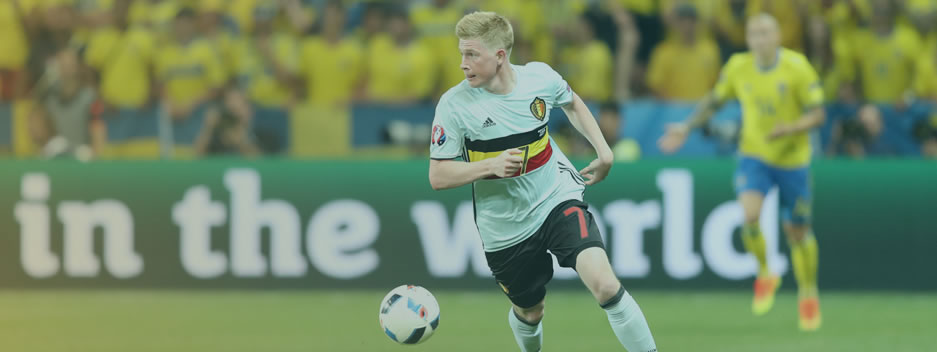How A Countries Change In Philosophy Breeds Success
- September 4th, 2019
- Tom Bean

With the Belgian football team at the top of the FIFA World Rankings and the men's hockey team winning their first ever World Cup in 2018, this small european country is in the midst of a golden generation of sport, fuelled by a change in their coaching philosophies.
In the early 00's, after years in the sporting wilderness on an international stage and early exits from numerous tournaments, a shift in approach was required.
Develop general motor skills
Identified as a priority was to improve children's basic motor skills. Before selecting a sport, they recognised that developing the general mobility skills of 3-8 year olds is crucial for learning sport-specific skills in future and leads to a more active life.
Multimove was born as an initiative unrelated to specific sports. Instead, the programme introduces 12 skills including: dribbling, hitting, kicking and catching.
In a relaxed environment, children are allowed to discover for themselves which sports they want to take up based on a solid foundation of basic skills. As a result, they are better equipped to learn more advanced, sport-specific skills when they take one up.
Emphasis on development rather than results
Player development was at the forefront of the Belgian's approach.
Head of the Belgian FA, Kris Van der Haegen, told The Way of Champions podcast [1] that 'coaches shouldn't be concerned with league tables - they should be thinking about developing players.'
Therefore, they changed the rules up to Under-14's. There are no league tables, there are no rolling subs and there is no player missing out on game time for the sake of chasing a result.
Now, kids play quarters in Belgian football, with subs allowed only at the end of the first and third quarters, meaning every player gets at least 50% game time. No one gets left behind and in the absence of pressure to win, players start to love the game, before learning it.
An inclination for restructure wasn't reserved solely for Football; and not just at the grassroots level either.
Belgian hockey have let the development of their players dictate their domestic leagues, even at the highest level.
To accommodate the new FIH Pro League, they reduced the amount of games and shortened the league season. This has given top players a chance to play both their club hockey and international tournaments, exposing them to twice the coaching as well as maintaining the quality of the domestic league - a challenge which positively affects player development domestically too.
With the hockey team taking silver in Rio, going one better in the 2018 World Cup and narrowly missing out in the Pro League final, the Belgian's 'player centered' approach seems to be making a difference.
The football team are at the top of the world rankings and having taken bronze in the World Cup, will be hoping the program brings further success come Euro 2020.
Who is in front of me?
As part of their new approach, coaches are encouraged to consider who is stood in front of them, their specific characteristics and what they are wanting to achieve.
Kris Van der Haegen says that 'if you want to change something that doesn't fit with the characteristics of the player, it makes no sense to do it' - coaches must adapt the environment to suit the characteristics of the player.
This tolerance to players specialities and rates of development has laid claim to some of Belgium's best successes.
Now considered one of the best in the world, Kevin Debruyne was a late developer who despite knock-backs, was afforded time through adapted approaches.
Ask yourself 4 questions
Throughout every level, Kris Van der Haegen suggests every coach should be asking themselves these four questions before planning a session:
- What do I want to get out of this?
- How can I do it?
- How can I do it in a way that the players will love it?
- Why did we decide to do this today?
Having clearly outlined what you want from the session, how to do it and why, you can create an environment a player loves and importantly, loves to learn in.
'It's about making a connection as a coach with all the players as individuals' and making their development the focal point of the sessions. When players recognise this, 'the magic will happen' says Kris Van der Haegen.
With children developing core motor skills across Belgium thanks to the Multimove initiative and individuals like heptathlete, Nafissatou Thiam, and their two major sporting teams benefitting from a 'player development first' approach, it will only be a matter of time before we see another on top of the world.
Use this as inspiration for your own coaching style to develop an approach which builds core skills, is sensitive to specific characteristics and develops a relationship with your players in an environment where they love to learn.
Get planning your sessions today with Sportplan.
[1] O'Sullivan, J. (Host). (2018, March 18). #52 How Belgium went from #66 to #1 in The World Rankings with Belgian FA Director of Coach Education, Kris van Der Haegen [Audio podcast]. Retrieved from https://wayofchampions.libsyn.com/52-how-belgium-went-from-66-to-1-in-the-world-rankings-with-belgian-fa-director-of-coach-education-kris-van-der-haegen